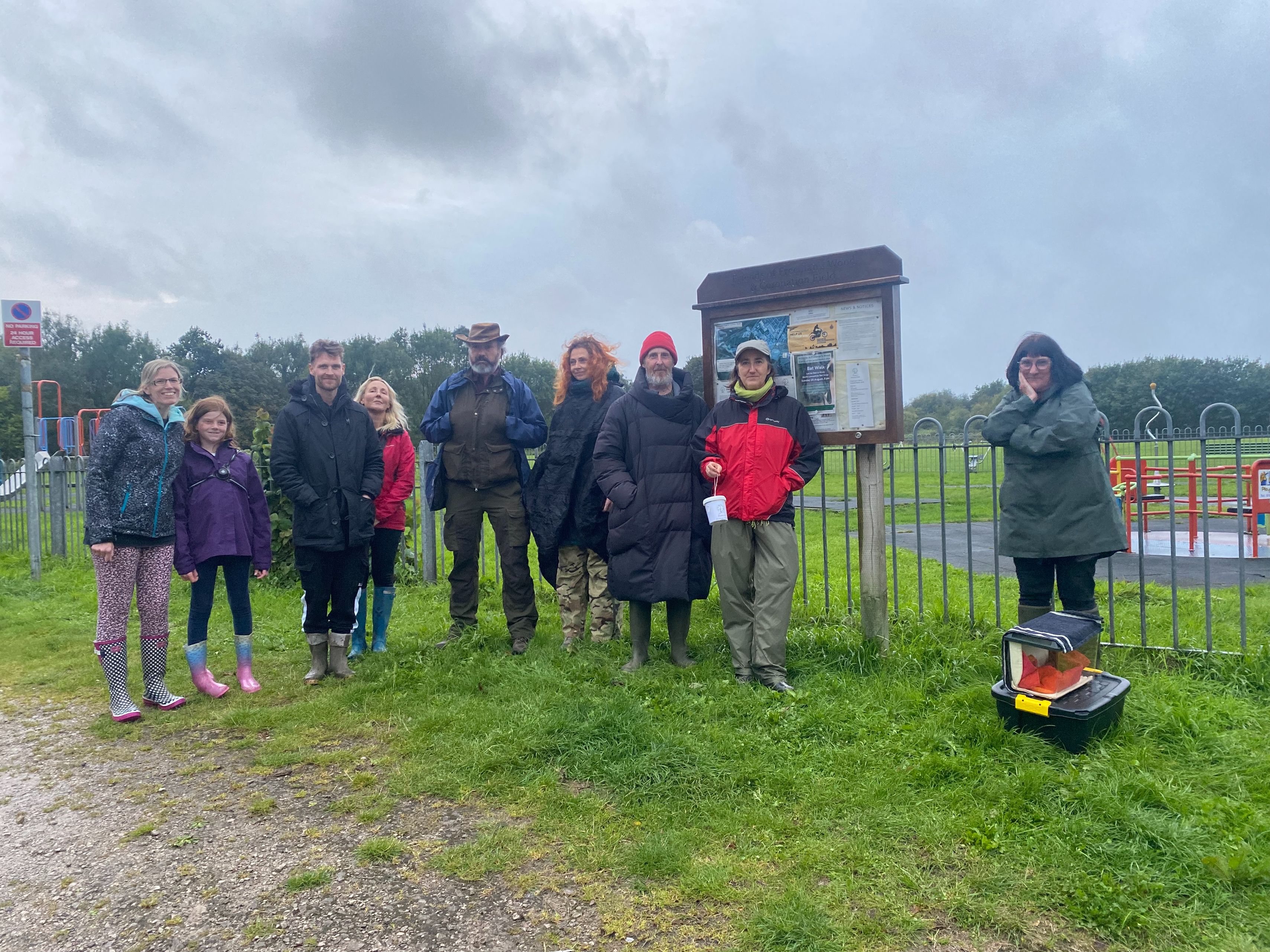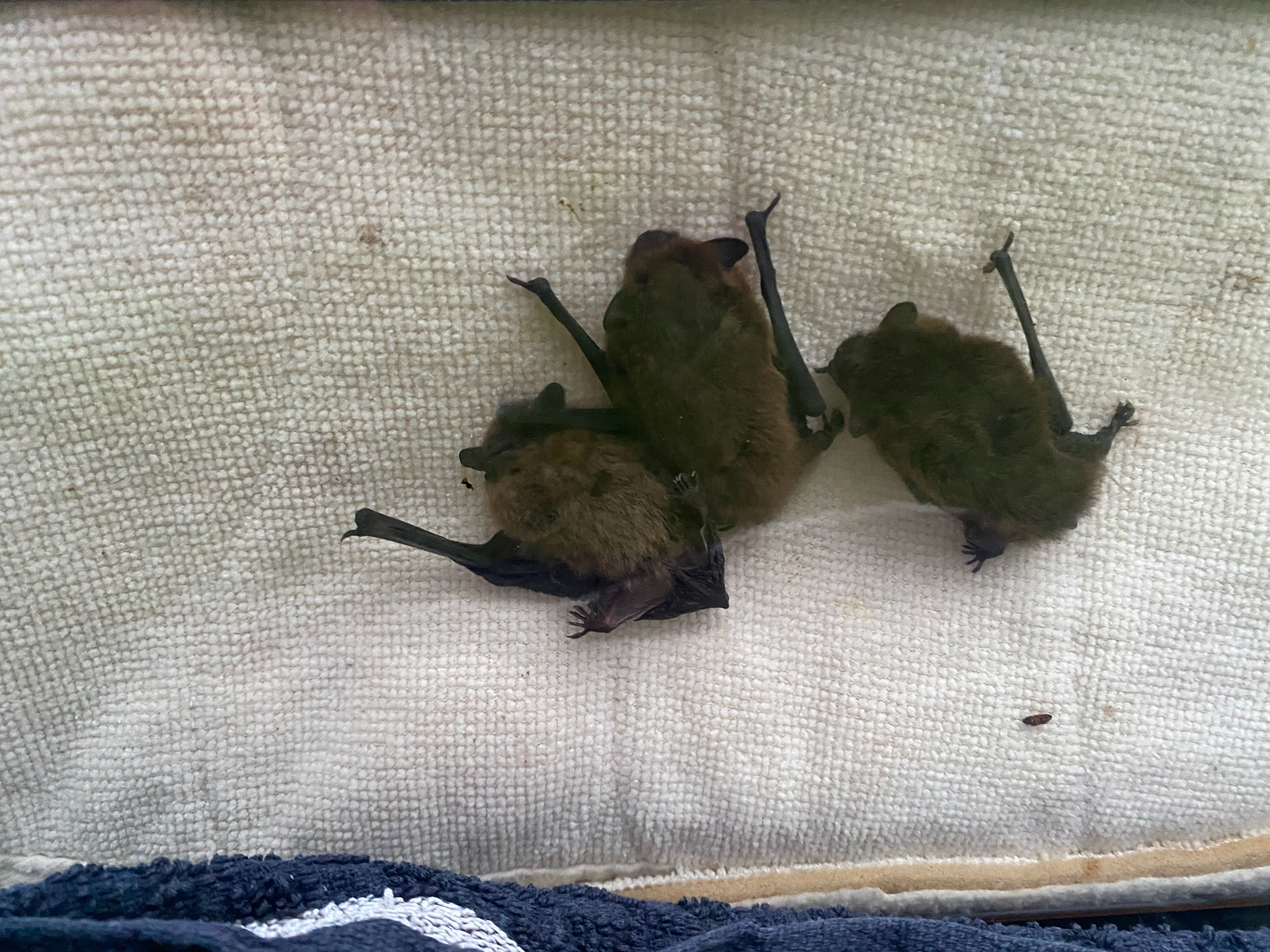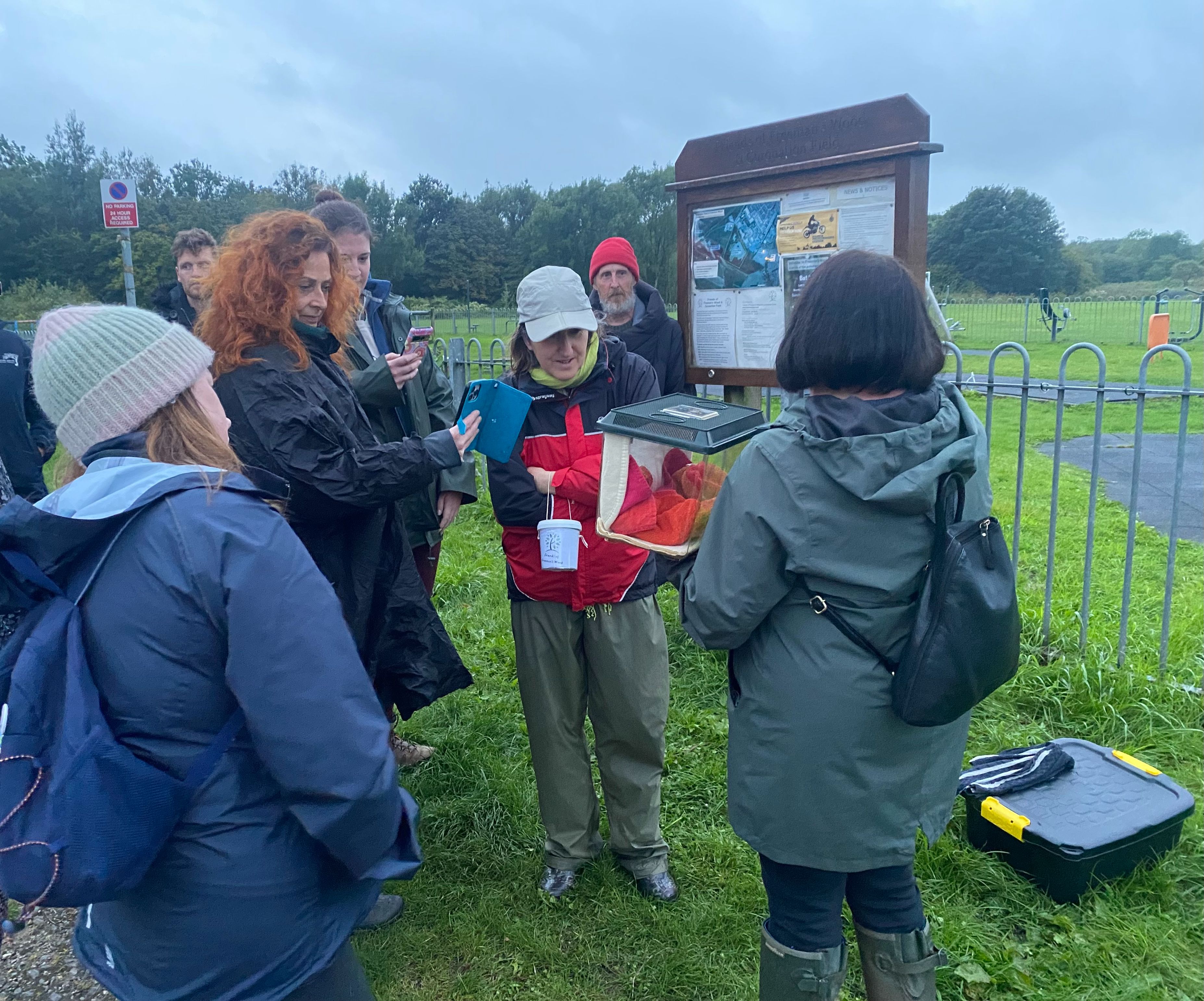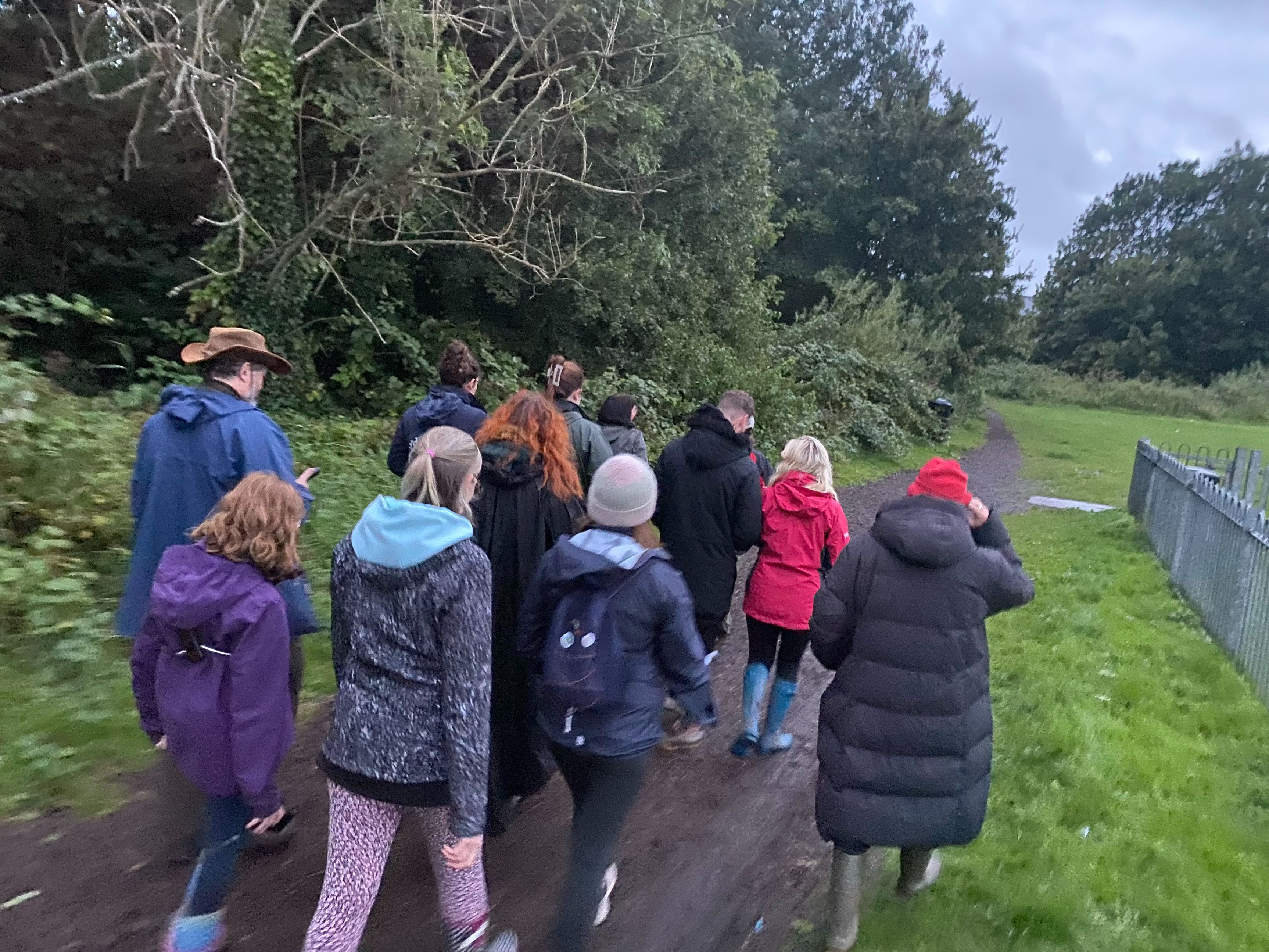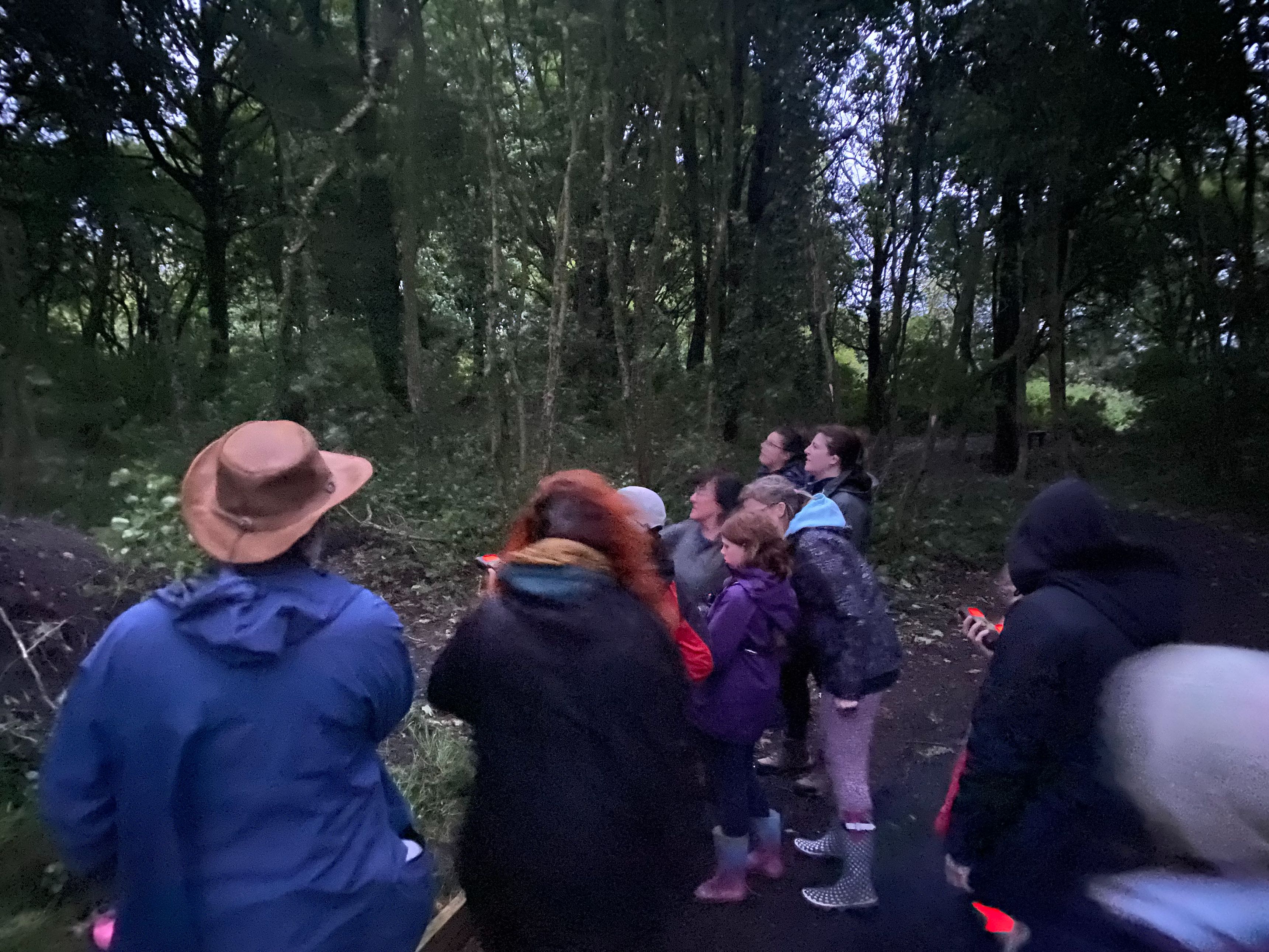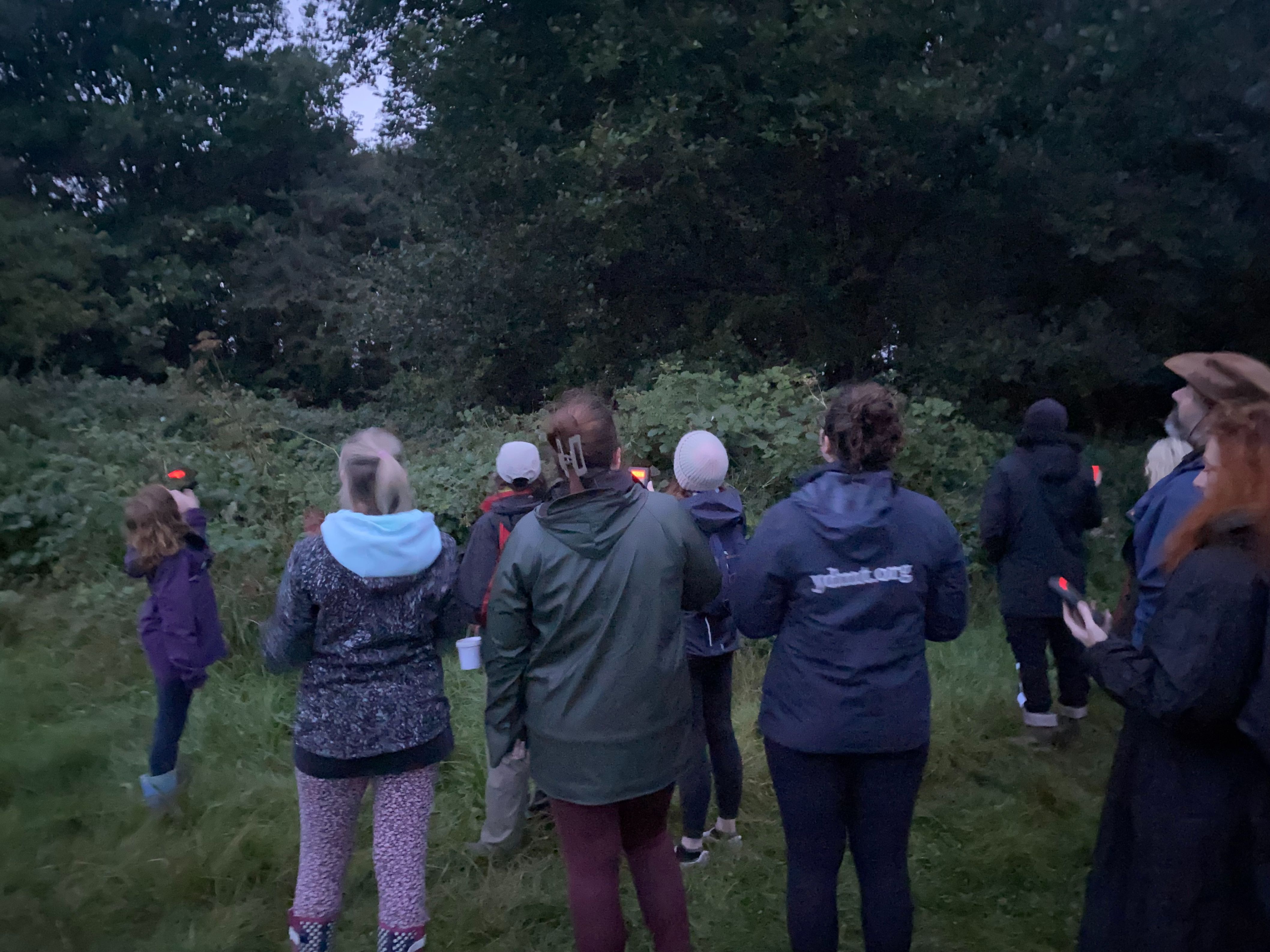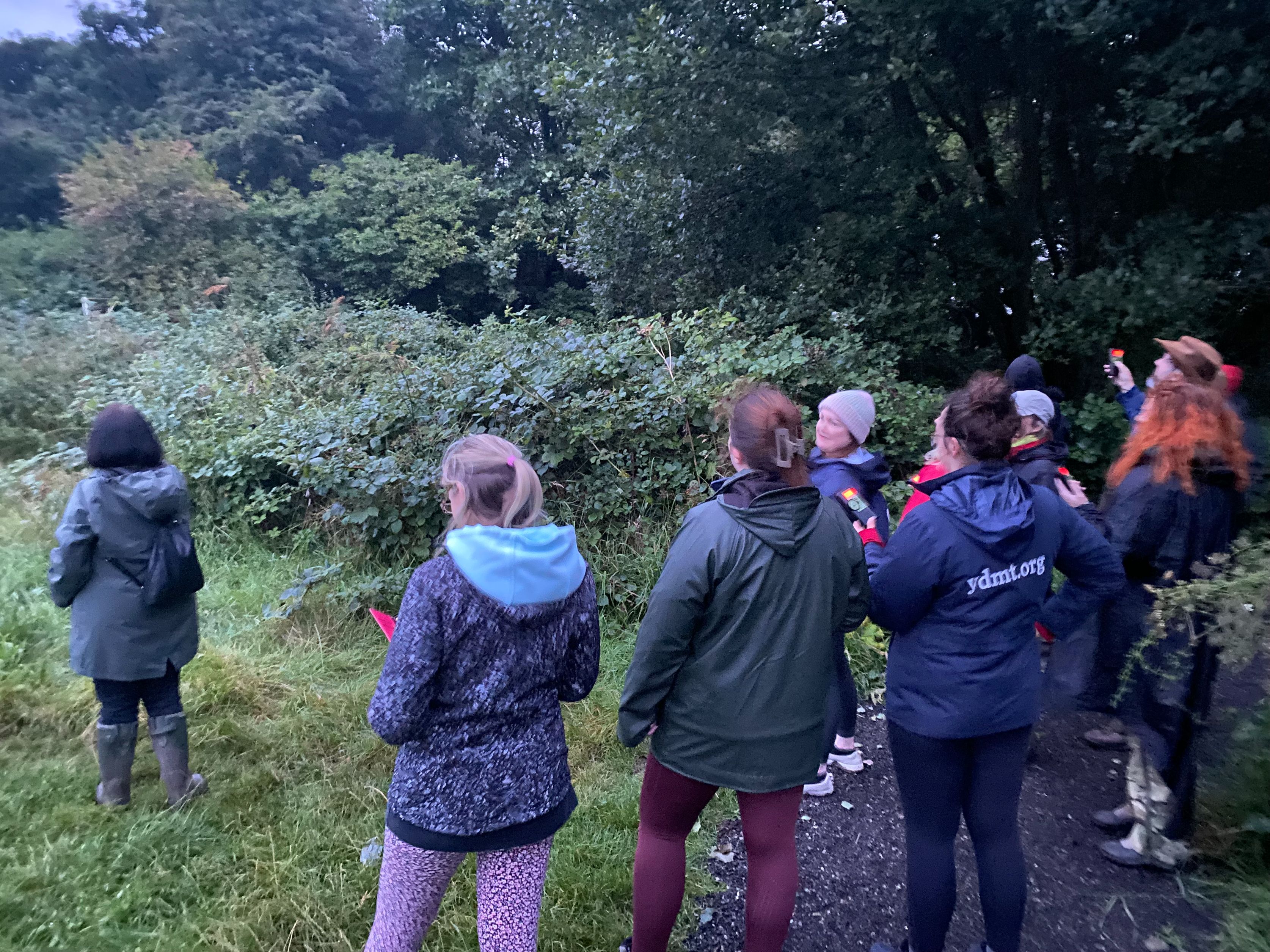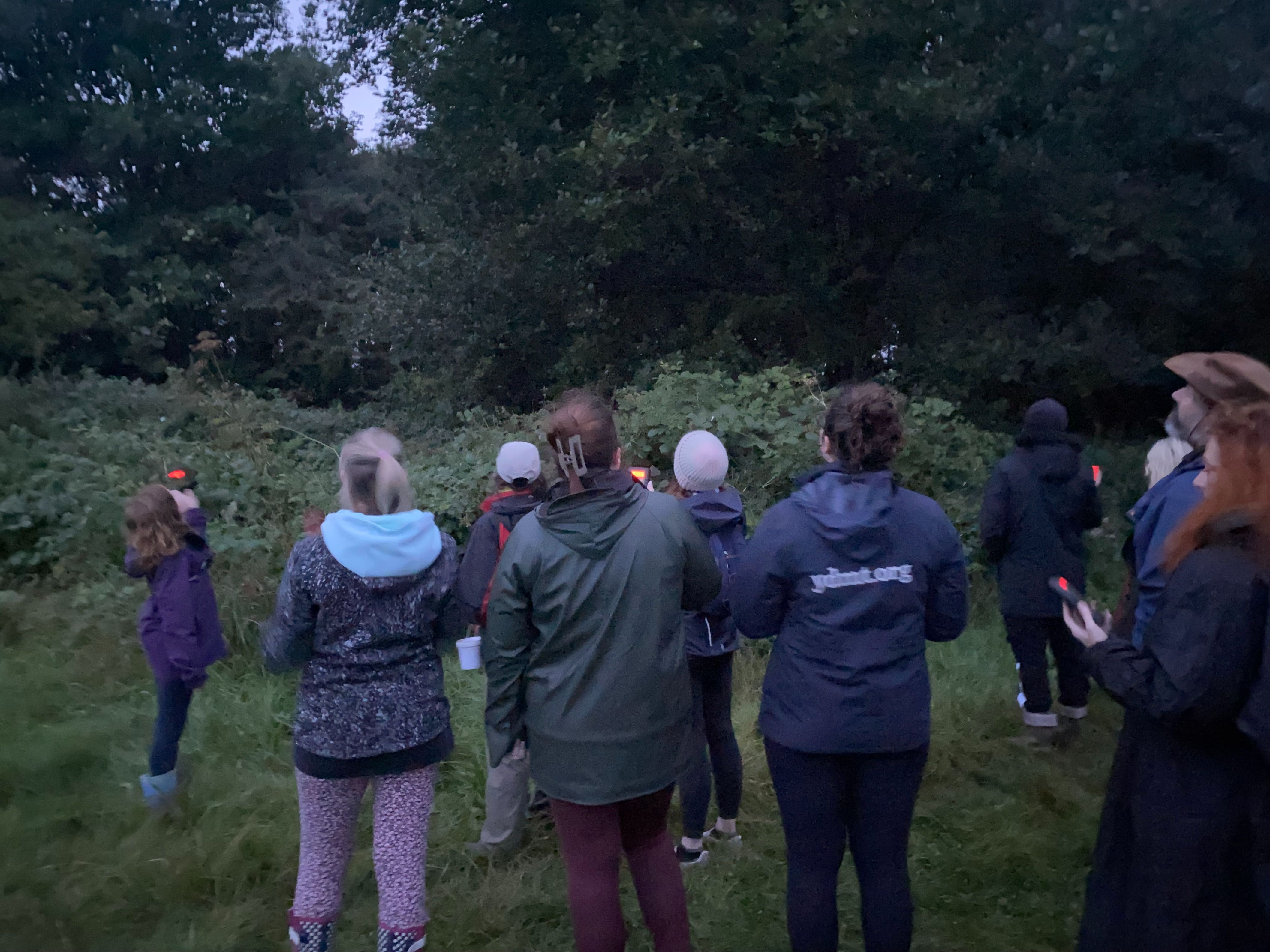Some feedback from our walk facilitator Gail 'bat lady' Armstrong
"I thought the weather wouldn't favour our bat walk on Sunday evening. Rain means fewer insects for the bats to catch and gusty wind makes it difficult for them to fly. However, as we all know, wildlife does not read the book so what do I know? We were treated to a great foraging display by about half a dozen Common Pipistrelle along the woodland edge inside Freemans Wood near to the Aldcliffe Road entrance to the new path which was a lovely spot sheltered form the wind. Many really loud “feeding buzzes” were heard on our bat detectors so the bats present were certainly not going hungry. It’s great to know that a site in the city supports good numbers of this protected species.
Common pipistrelle (Pipistrellus Pipistrellus) are one of the smallest and most common British species. They are a generalist bat, finding food and shelter in our town and city parks, gardens and other green spaces. Feeding mainly on small flies and midges which they find using echolocation, they weigh just 5g. Female bats give birth to one baby each year so they are slow to increase their numbers. Bats are indicators of a healthy environment since they rely on night flying insects which in turn need vegetation and clean water to breed. Bats also need a varied landscape around which they can navigate using echolocation"
Gail was kind enough to bring us some of her own bats of which she is registered to care for, photos of these are in our gallery.
Another thoroughly enjoyed walk by all who attended!
